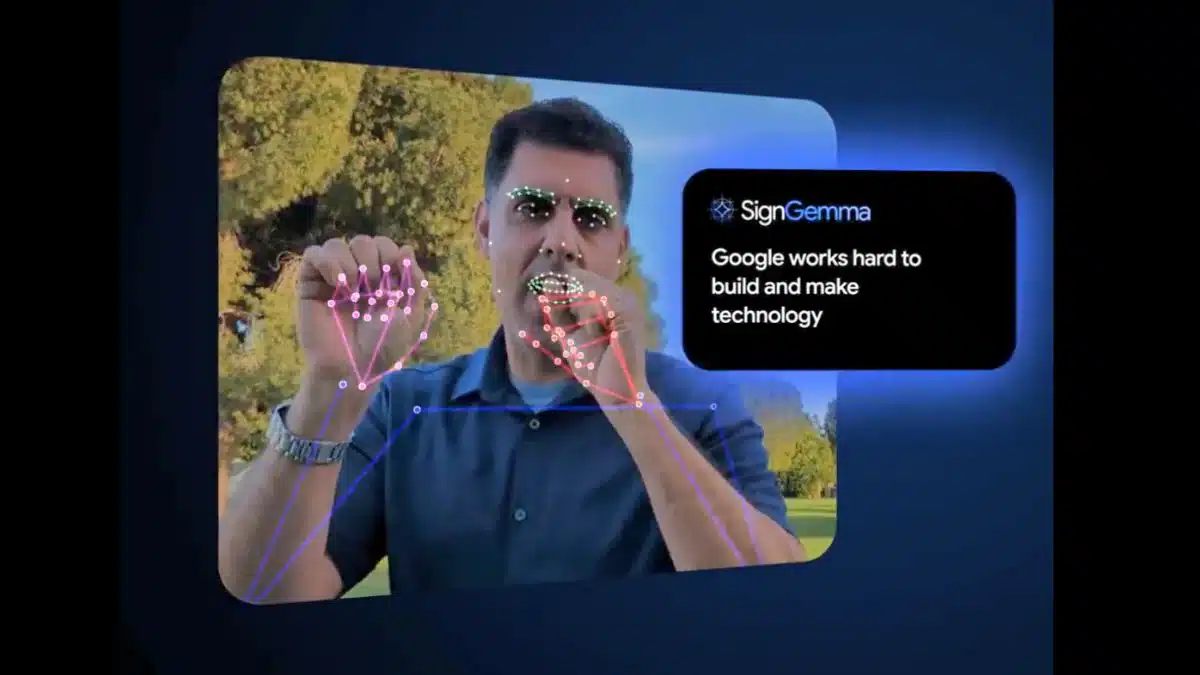Google Launches SignGemma: AI Model for Translation

Google has unveiled SignGemma, an innovative artificial intelligence (AI) model designed to translate sign language into spoken text. This new addition to the Gemma series is currently undergoing testing and is anticipated to launch later this year. As an open-source model, SignGemma aims to enhance communication for individuals with speech and hearing disabilities, enabling them to interact more effectively with those unfamiliar with sign language. The model was first introduced during the Google I/O 2025 keynote, showcasing its potential to foster inclusivity in technology.
Real-Time Translation Capabilities
SignGemma stands out for its ability to provide real-time translation from sign language to text, facilitating seamless face-to-face communication. During its presentation at the Google I/O event, Gus Martin, the Gemma Product Manager at DeepMind, emphasized the model’s advanced capabilities. The AI has been trained on diverse datasets representing various sign language styles, with a particular focus on American Sign Language (ASL) for translating into English. This specialization allows SignGemma to deliver accurate translations, making it a valuable tool for users who rely on sign language for communication.
In a recent post on X (formerly Twitter), Google DeepMind shared a demonstration of SignGemma, highlighting its potential impact on inclusive technology. The company expressed excitement about the model’s capabilities and encouraged feedback from early users. As an open-source model, SignGemma can operate without an internet connection, making it particularly useful in areas with limited connectivity. This feature enhances its accessibility, allowing more individuals to benefit from its functionalities.
Technical Framework and Functionality
SignGemma is built on the Gemini Nano framework and employs a vision transformer to accurately track and analyze hand movements, shapes, and facial expressions. This technological foundation enables the model to interpret sign language effectively, ensuring that users receive precise translations in real-time. The model’s design prioritizes accessibility, making it an essential tool for individuals with hearing and speech disabilities.
Google’s commitment to inclusivity is evident in the development of SignGemma. By making the model open-source, the tech giant allows developers to integrate it into their applications and tools. Additionally, there is potential for Google to incorporate SignGemma into existing AI platforms, such as Gemini Live, further enhancing its reach and usability. The model’s early testing phase invites users to engage with the technology and provide valuable feedback, contributing to its refinement before the official launch.
Future Prospects and Community Engagement
As SignGemma approaches its anticipated release later this year, Google is actively seeking community engagement to shape its development. The company has published an interest form for individuals interested in trying out the model and sharing their experiences. This collaborative approach not only fosters a sense of community but also ensures that the model meets the needs of its users effectively.
The introduction of SignGemma marks a significant step forward in the realm of assistive technology. By bridging the communication gap between sign language users and those unfamiliar with it, this AI model has the potential to transform interactions and enhance the quality of life for many individuals. As testing continues and feedback is gathered, the excitement surrounding SignGemma builds, promising a future where communication is more inclusive and accessible for everyone.
Observer Voice is the one stop site for National, International news, Sports, Editor’s Choice, Art/culture contents, Quotes and much more. We also cover historical contents. Historical contents includes World History, Indian History, and what happened today. The website also covers Entertainment across the India and World.

